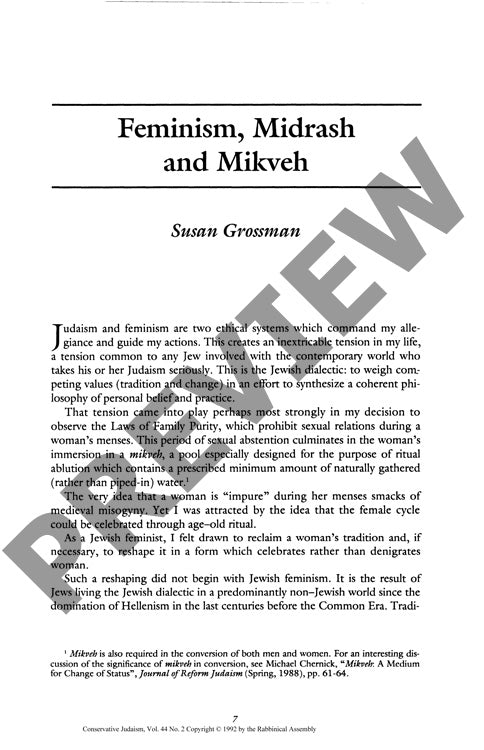Feminism Midrash and Mikveh
Couldn't load pickup availability
Can ancient Jewish laws around menstruation be reimagined through a feminist lens while preserving traditional observance? Through personal exploration of mikveh (ritual immersion) and Family Purity laws, a path emerges for transforming these practices from sources of stigma into celebrations of women's experiences. Employing midrashic methodology, this analysis traces menstrual purity laws from their Biblical origins in Leviticus through Talmudic interpretation to contemporary practice, documenting their evolution from Temple-based ritual requirements to marital regulations. The historical investigation reveals how medieval Jewish communities imposed additional restrictions on menstruating women, yet also suggests opportunities for reclamation. Through feminist midrash and historical-critical analysis, the laws can be productively reframed from "Family Purity" (Taharat ha-mishpahah) to "Family Holiness" (Kedushat ha-mishpahah), shifting emphasis from ritual impurity to relationship sanctification. When divorced from purity/impurity terminology and recontextualized within frameworks of holiness and marital enhancement, these practices can serve positive functions in modern Jewish life. This reinterpretation allows traditional observances to affirm women's experiences while maintaining communal continuity, supporting the establishment of Conservative Jewish mikvaot with inclusive practices that accommodate diverse relationship structures.

More Information
-
Physical Description
-
Publication Information
Published 1992
ISBN
-
Publication Credits
Susan Grossman

